Winner of the Pulitzer Prize for Fiction, Viet Thanh Nguyen’s debut novel also won an Edgar Award, an Andrew Carnegie Medal, and was named one of the “100 Best Mystery and Thriller Books of All Time” by TIME magazine.
Now, The Sympathizer has been adapted into a limited series on HBO from executive producers Park Chan-wook and Robert Downey Jr.
Whether you’re a fan of the book or coming to The Sympathizer fresh from the show, though, what do you do when you’ve finished reading or watching? Not to worry.
We’ve put together a list of 10 books that capture both the thrills and the human drama of this remarkable debut, so that you’ll know where to turn next.
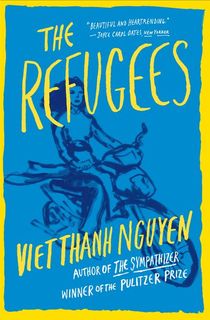
The Refugees
Though The Sympathizer was Viet Thanh Nguyen’s debut novel, he already had numerous short stories under his belt, and this “important and incisive” (Washington Post) collection of them hit shelves not long after the publication of The Sympathizer, making it a great place to turn after you’ve finished that book.
Like Nguyen’s Pulitzer Prize-winning novel, The Refugees is deeply concerned with the lives of immigrants, and features stories set in both Vietnam and the United States, chronicling the lives of many different people who are faced with life-altering choices in an “urgent, wonderful collection” (NPR).
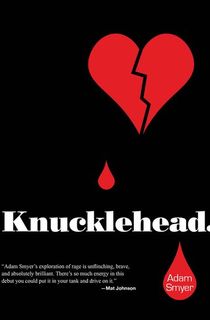
Knucklehead
Marcus Hayes is a law student who struggles with anger management.
He’s also Black, and living in California in the 1990s in this “mordantly funny” book (San Francisco Chronicle) that “plumbs of the nuances of black male identity” (Kirkus Reviews).
Through Hayes’ sardonic perspective, we see not-so-distant history unfold, from Rodney King to the Oklahoma City bombing, and also see how that history reflects and refracts our own modern world.
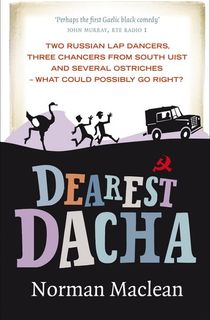
Dearest Dacha
The back cover copy calls Dearest Dacha, “Something akin to a mad Gaelic version of The Sopranos as directed by the Coen brothers,” and… do you really need to be sold any more than that?
Hailed by RTE Radio 1 as “perhaps the first Gaelic black comedy,” Dearest Dacha comes from renowned comedian, entertainer, and writer Norman MacLean, who has been called a “24-carat comedy jewel that just keeps sparkling” by Bruce Morton, of BBC Radio Scotland.
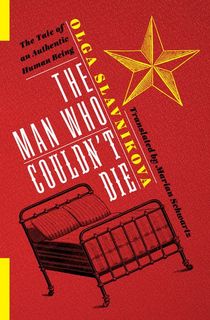
The Man Who Couldn't Die
Alexei Afanasievich Kharitonov lies paralyzed in his room, felled by a stroke, but his family, reliant as they are on his pension, keeps him not only alive but living in a perpetual shadow world where the Soviet Union never fell.
This “funhouse mirror worth looking into, especially in today’s United States with its alternative facts, unpoetic assertions, and morbid relationship with the past” (Los Angeles Review of Books) shows why Olga Slavnikova is “a writer American readers will want to have more of” (Kirkus Reviews).
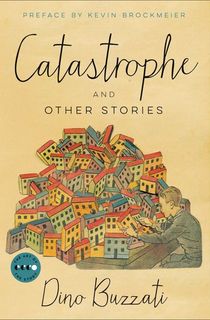
Catastrophe
“An evocative collection that might pull the rug from under your feet.” That’s what Kirkus Reviews called these “twenty riveting stories” (Publishers Weekly) from Strega Prize-winning author Dino Buzzati.
From state-sponsored illnesses to a sanatorium where patients are housed according to the “gravity” of their conditions, the surreal and sometimes terrifying stories in Catastrophe evoke “shades of Fellini, shades of Dickens, shades of the great Italian horror director Mario Bava” (Los Angeles Times) to produce a work that is, ultimately, startlingly unique.
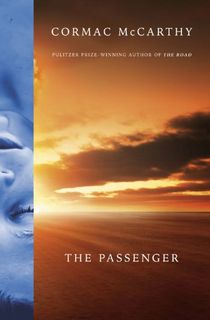
The Passenger
Released in tandem with a second, companion novel (Stella Maris), The Passenger represents Cormac McCarthy’s first novel since The Road and, along with the second half of what is sometimes called the Western Family Duology, his last major work before his death in 2023.
It concerns Bobby Western, a salvage diver whose father was one of the men who worked on the atomic bomb and whose sister was a mathematical genius who took her own life.
But, in proper Cormac McCarthy fashion, it’s also about a mythic and almost apocalyptic view of America, the world, and humanity’s place in it.
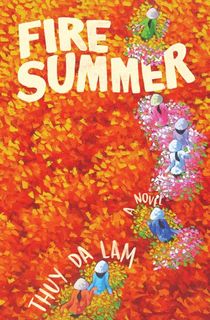
Fire Summer
Maia Trieu is a curator’s assistant in Little Saigon in California.
When she’s offered a research grant to return to Vietnam for one summer in 1991, she embarks upon an unexpected adventure in this unforgettable book that “paints a vibrant portrait of post-war Vietnam, illuminating both the dangers and the great beauty of a country in the process of healing itself” (Booklist).
For fans of The Sympathizer, this evocative novel of two worlds – and the people caught between them – should prove perfect reading.
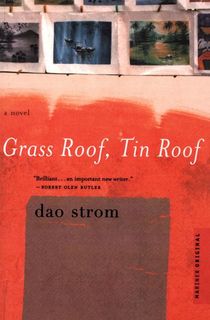
Grass Roof, Tin Roof
What does “home” really mean? Especially for those who have had to flee their homes and settle in new countries, that question can sometimes be a difficult one to answer, as Dao Strom explores in this “affecting study on the slippery nature of home” (Los Angeles Times).
Spanning several decades, Grass Roof, Tin Roof follows Tran and her family as she flees Vietnam in 1975 and settles in America.
However, they are haunted by the shadows of more than one war in this novel that “explores the mysteries of loss, culture and identity with skill, poignancy and imagination” (Detroit Free Press).
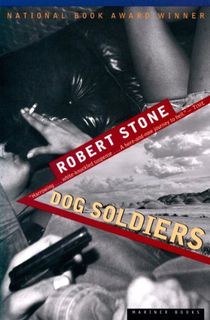
Dog Soldiers
Winner of the National Book Award when it was released in 1974, Dog Soldiers was named one of the “100 Best English-Language Novels” between 1923 and 2005 by TIME magazine and was adapted into the 1978 film Who’ll Stop the Rain, starring Nick Nolte.
It tells the story of the waning days of the Vietnam War, when a Vietnam correspondent becomes embroiled in a heroin deal that goes south, both literally and figuratively. With tight prose, Stone charts the fall of the counterculture in America and the effect that the Vietnam War had both here and abroad.
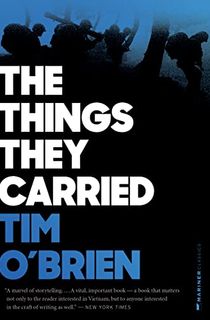
The Things They Carried
Based on his own experiences in Vietnam, Tim O’Brien’s legendary novel has become one of the most celebrated stories of the Vietnam War – and one of the most beloved books in modern letters.
Named one of the “Books of the Century” by The New York Times, a finalist for the Pulitzer Prize and the National Book Critics’ Circle Award, this unforgettable collection of linked stories is taught in classrooms all over the country and shows why O’Brien has been hailed as “the best American writer of his generation” (San Francisco Examiner).
Featured image: Luke Chesser / Unsplash

